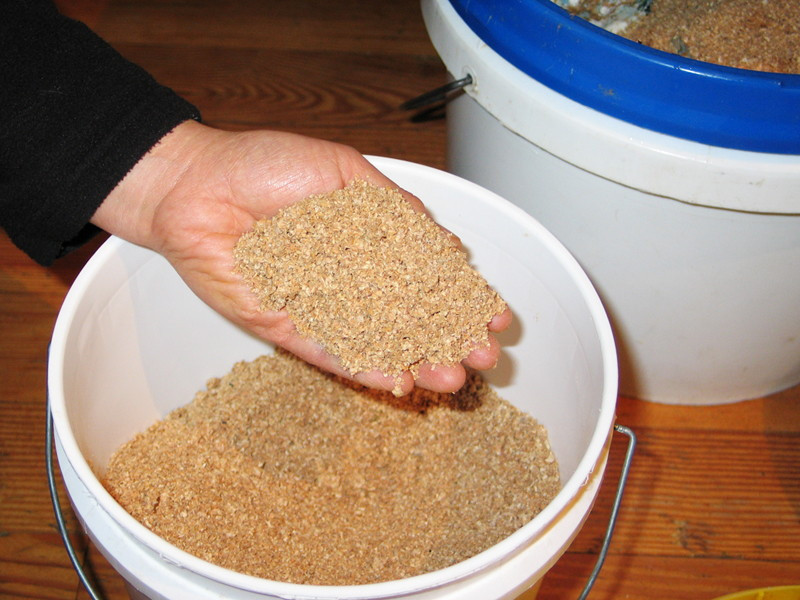Better than composting?
Ancient Japanese process breaks down waste by fermenting it
Creating food waste is not a good thing for the environment, but how do we stop? Some say composting is the answer.
Michael Gordon, a Bokashi Cycle product distributor for Canada, disagrees.
“Composting does not occur anywhere in nature,” he said.
According to Gordon, even though people think they are being environmentally friendly when they compost, the process actually produces and emits methane because it is exposed to the environment.
Bokashi, an ancient Japanese process, breaks down food products without oxygen in airtight containers, so that no greenhouse gasses are allowed to escape.
Bokashi uses “effective microorganisms” (EM), consisting of fungus and yeast already found in soil, to break down food. Because no energy is allowed to escape, it remains in the mixture and feeds the soil much more productively than regular fertilizer.
“It goes to work on the waste by fermenting it, whereas compost works by spoiling and putridity,” said Gordon.
Sylvie Hébert, compost project coordinator for Resource Conservation Manitoba, said that although large-scale composting can produce methane because of the lack of air being distributed, digester machines are used to trap it and actually convert it into productive energy.
The bokashi process takes about three to five weeks in the bucket until it is ready to bury and another 10 to 14 days once it’s in the ground in order to completely return to soil.
“Compost, after six weeks underground, is still rotting garbage,” said Gordon.
Hébert admits composting can take between six months to three years, depending on your dedication, and agrees composting is not always ideal.
“There are barriers. Not everyone wants worms in their apartment,” she said.
Bokashi can also break down meat and dairy without the worry of attracting pests.
Gordon’s Bokashi Cycle system includes two buckets, a three-month supply of bokashi mixture and a shaker and spoon. The package costs about $120.
Bokashi enthusiast Brian Smallshow argued that you don’t have to pay a lot of money to do it. He uses livestock feed to dilute the EM mixture and he uses restaurant supply buckets to store the food/bokashi mixture. It costs him about $25 every one or two years.
Smallshow said that even though he can’t compare the bokashi process to traditional composting because he has never tried it, kitchen composting is something that everyone should be doing.
“[The bokashi method] makes it a lot nicer to deal with because it’s not stinky and unpleasant. That alone is enough reason to use it,” Smallshow said.
You can get your organic waste picked up for free by Samborski’s Garden Supplies or drop it off at a community garden.







